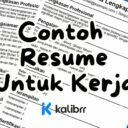Top 5 Call Center Job Interview Questions and How to Best Answer Them

When call centers first appeared in the late ’90’s, it was dubbed as a sunrise industry with a huge potential for growth and numerous career prospects. Fast forward to today, and that promise of growth has already come to fruition.
It is estimated that by 2016, the Business Process Outsourcing (BPO) industry will generate about $25 billion in revenue, equivalent to 10% of the Philippine economy. That is at par with the amount of remittances that our modern day heroes, the Filipino Overseas Foreign Worker, send home on a yearly basis.
If you have your sights set on a call center career, then one of the biggest hurdles you need to overcome is the interview. Needless to say, it’s important to ace it!
Whether you’ll be assigned to work for an inbound account, where you’ll be handling inbound calls, or an outbound program, which can range from standard welcoming calls to sales pitches, here are some of the questions you should be prepared for in a interview.
TOPICS
1. Why do you want to work here?
In most cases, expectations seldom match the reality of being a call center agent. First time applicants think that it can be an easy way to earn fast income and that all they need is to read scripts and call it a day (or night, if you work in the graveyard shift).
Some accounts are a lot more demanding than just parroting a ready-made script. Premium accounts might require you to undergo training or pass a series of exams before you can begin manning the phones.
To answer this question, research about the company first. Find out what you like about the organization, whether it’s the company culture, their mission statement, the management team that you admire, or their training program.
If one of your major reasons for wanting a call center job is the higher-than-average pay, be upfront about it. It’s no secret that the pay range in a call center is higher compared to other industries. The key is in convincing them that you deserve it because you’re a fast learner, possess the qualities they need to succeed, and that you’re worth the investment.
2. How do you cope with a high pressure environment?
From shifting schedules to dealing with irate callers to keeping up with the latest information, call center agents need to constantly be on their toes. You need to be the type of person who can stay calm and respond appropriately during high pressure situations. Any job will have their share of challenges, but working in a call center means you need to find the balance between adequately meeting both your customer’s needs and the company you’re representing.
The best way to answer this is by giving a real life situation that you dealt with where you found a solution that worked for everyone. If you’re a fresh grad, share a story about a challenge you met, and how you solved it. Your experiences will vary, but the bottom line is that you didn’t allow the situation to get the better of you, and that you solved it without burning bridges or any untoward consequences.
3. Why should we hire you?
To answer this question, convince the interviewer how your background matches the requirements they’re looking for. But if that’s not the case, then let them know that you’re a fast learner who can thrive in a fast paced environment. Working in a call center means that you need to be a step ahead of your caller and know everything you’re expected to know about the company you’re representing or the products you’re offering.
The chance for career growth is also high, and if you’re keen to move up the ladder, let the interviewer know that you’re willing to do what it takes to move up and become a valuable member of the company, and be worthy of the high compensation package you expect to get.
4. What are your strengths and weaknesses?
This question seeks to find out what you’re like as a person, how you view yourself, and how you handle both good or bad work situations. There’s no standard or correct way to answer this, obviously because every person is different.
Talking about your strengths is easier than admitting what you’re weak at. The question about your weakness is actually a way of the interviewer to try to catch you off guard so you will reveal something you didn’t want to say.
More than your personal traits, this questions seeks to find out how well you know yourself and what you do to leverage on what you believe are your strengths and weaknesses. For example, if you’re naturally a people person, did you maximize this trait to contribute to your school org by doing PR work?
You have to know what your weaknesses really are to give a good answer. You can do this by taking a personality type quiz. You can also review the job description to see which expectations you think you won’t meet 100%. Talk about how you’ve conquered your weaknesses in your other experiences.
5. How do you see yourself five years from now?
This question seeks to know how your personal goals align with what the company can offer you, and if your needs match. If you’re keen in staying in the call center industry, find out what your career path could potentially be, but be flexible enough to be open to changes, too.
The interviewer wants a candidate who has an idea where he or she wants to go, and what positions within the company can be given to accommodate that. So researching the company helps, familiarizing yourself with what they offer, and letting the interviewer know which positions you had your eye on is the best way to answer this question.
These questions will also give you a good idea to assess whether or not you’ll thrive in a call center environment. Depending on the account you’ll be assigned to, it’s best to be prepared so that your expectations are sufficiently met. Don’t give answers just to please the interviewer, but ask your own questions to see if you’re a good fit. That way, you increase your chances to not only of getting hired, but of having a fruitful career in the call center industry.






Belum ada komentar yang tersedia!